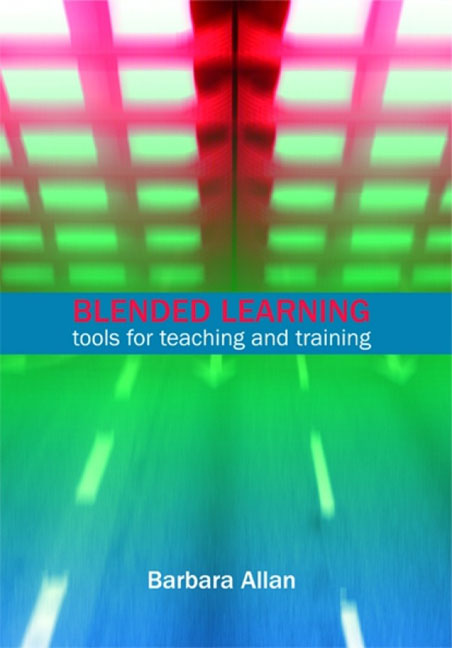Book contents
- Frontmatter
- Contents
- List of figures
- List of tables
- Acknowledgements
- 1 Introduction
- 2 Tools and technologies
- 3 Models of teaching and learning
- 4 Planning and designing blended learning programmes
- 5 Planning and designing learning activities
- 6 Working with groups
- 7 Working as a tutor
- 8 Communities of practice
- 9 Managing blended learning projects
- Index
9 - Managing blended learning projects
Published online by Cambridge University Press: 08 June 2018
- Frontmatter
- Contents
- List of figures
- List of tables
- Acknowledgements
- 1 Introduction
- 2 Tools and technologies
- 3 Models of teaching and learning
- 4 Planning and designing blended learning programmes
- 5 Planning and designing learning activities
- 6 Working with groups
- 7 Working as a tutor
- 8 Communities of practice
- 9 Managing blended learning projects
- Index
Summary
Introduction
Many library and information workers are involved in managing or working on projects that design, develop and implement blended learning programmes. For example, they may be involved in the development of reusable learning objects, of a new website or portal, or of interactive training materials.
Project management is a key transferable skill (Milner 2007) and it is essential for library and information workers to be able to manage projects and to work effectively within project teams. This chapter provides guidance on project management and covers the following topics: principles of project management; the people side of project management; working in collaborative and multi-professional teams; obtaining financial support; and gaining accreditation for your programme.
Principles of project management
There is an extensive literature on project management. Allan (2004) provides a detailed guide set in the context of ILS, and more general textbooks include Maylor (2003) and Lockyer and Gordon (2005). In addition, funding bodies such as the Joint Information Systems Committee (JISC) provide guidance on project management (www.jisc.ac.uk) and projects that are funded by this body will need to use their guidelines and documentation processes.
The traditional project management literature developed from research and practice in industry and military projects and, as a result, offers an approach that is embedded in the scientific management field. These traditional approaches to project management tend to be concerned with splitting the project into its constituent parts and then managing and controlling the project process in a rather top-down, authoritarian manner. While it is important to approach project management in an organized and logical manner, it is also important to appreciate the importance of people and the management of the relationships aspect of a project.
How does project work differ from the day-to-day work in a library or information department? The characteristics of projects include:
• having a definite start and end date
• being unique and novel to the people involved in the project
• having limiting factors, e.g. time, resources
• having outcomes that usually result in change
• having a single point of responsibility.
If you are involved in a new project, the first question to ask is ‘How complex is the project?’ Extremely complex projects require the use of project management tools and techniques whereas relatively simple projects can be managed with a plan written on a single sheet of A4 paper.
Information
- Type
- Chapter
- Information
- Blended LearningTools for teaching and training, pp. 201 - 222Publisher: FacetPrint publication year: 2007
